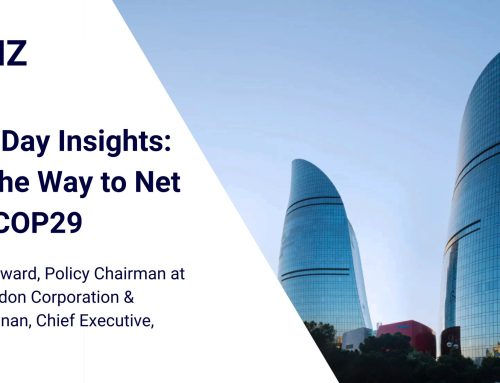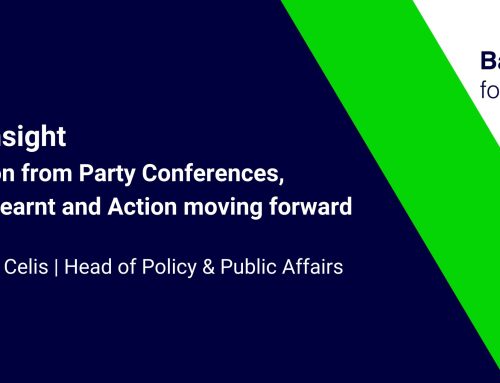Since 1971, the World Economic Forum (WEF) has annually convened key international organizations, governments, global corporations, and members of civil society with the aim of fostering an attitude of openness and cooperation. This gathering, commonly referred to as Davos, occurs in the Swiss Alps and has become synonymous with the yearly meeting of influential stakeholders on the global stage. This year, the forum will take place from the 15th to the 19th of January with the theme ‘Rebuilding Trust,’ focusing on the “fundamental principles driving trust, including transparency, consistency, and accountability.” The forum has also presented leaders with a crucial question: “Will the coming year be a period of ‘permacrisis,’ or will 2024 be a time for resolution and recovery?” In this paper, I outline the key themes of Davos 2024.
The Grow of AI – Threats and Opportunities
The growing of artificial intelligence (AI) across all industries will be a key topic for this year. The transformative power of AI is reshaping our world by enhancing our daily lives, work productivity, and fostering creativity. The use of AI intelligence is also growing to tackle climate change. AI actively combats climate change by leveraging its capabilities in data analysis, prediction, and optimization. It also aids in climate modelling, ecosystem monitoring, disaster response, and supply chain optimization, making it a versatile and proactive tool for addressing various aspects of the climate crisis and promoting sustainable practices across industries. Yet, the rapid exponential evolution of these technologies is propelling the world into uncharted territory, presenting potential challenges such as technology misuse, security breaches, job displacement, and economic disruption. Therefore, it is crucial that stakeholders collaborate to drive the effective development of policies to regulate AI systems, ensuring they do not hinder innovation.
Climate, Nature, and Energy – A Long-Term Strategy
Climate and Nature will be prominent topics at Davos. Concerning nature, the conference will feature the publication of a comprehensive list of early adopters of the Taskforce on Nature-related Financial Disclosures (TNFD) Disclosure Framework. These organizations, known as TNFD Adopters, express their commitment to initiating disclosures aligned with the TNFD Recommendations in their corporate reporting. Overall, there is a pressing need for enhanced policy clarity on reporting standards for both climate and nature, extending beyond large companies to include Small and Medium-sized Enterprises (SMEs). Given their involvement in numerous supply chains, SMEs are at risk of lagging behind in climate policies without clear guidelines.
Additionally, the energy transition is a key agenda item, demanding increased investment for progress in energy efficiency and clean energy. Innovators, large energy companies, energy users, and investors must actively double their annual investments in advanced energy solutions, particularly in areas like clean hydrogen, carbon capture and storage, and battery storage, building on the 24% increase in clean energy technology investments between 2021 and 2023. Driving the energy transition requires a comprehensive approach. To decarbonize buildings, an incremental strategy is essential, providing the wider market with a clear pathway to achieving net zero. Moreover, an effective policy environment, including tax incentives, programs, and public-private partnerships, plays a significant role in fostering energy efficiency. Currently, there is no clear decarbonization pathway. Governments and regulators must actively ensure a stable policy and regulatory environment to avoid disruptions and uncertainties that can impede progress and undermine investor confidence, actively providing clear policies and incentives for the years to come.
A Fragmented World – Strengthening Security and Cooperation
The slowdown of the global economy will be a prominent focus at Davos. Inflation surged as the world emerged from the pandemic and faced geopolitical challenges such as Russia’s invasion of Ukraine, resulting in increased food and energy prices. Although inflation has begun to ease in major economies like the US and Europe, it remains high. Moreover, there are currently 13 major global conflicts in the world, with the Israel’s occupation of Gaza taking central stage. Given the current state of geopolitical and market uncertainty, cooperation is essential to achieve security. It is crucial to increase humanitarian and monetary aid, support vulnerable nations in managing debt and strengthen trade to face this geopolitical instability.
A New Era – Creating Jobs and Growth
The conference will delve into how government, business, and civil society can unite around a fresh economic framework to avoid a decade of low growth and place people at the centre of a more prosperous trajectory. Additionally, the focus will be on minimizing trade-offs and maximizing synergies in situations where traditional measures seem ineffective. This exploration is supported through partnerships with international economic institutions and top academics, alongside the Forum’s initiatives on competitiveness, innovation, and human capital.
Davos will be an opportunity to uphold the momentum from COP28. Bankers for Net Zero will be present on the ground to continue our work with the public and the private sector to foster partnerships and turn net zero commitments into action.
Contact
Elena Pérez Celis,
Head of Policy & Public Affairs
E: elena.perezcelis@bankersfornetzero.co.uk



